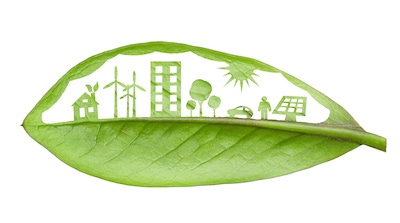The company plans to offer bio- and/or recycled-based alternatives for its entire range of engineering plastics by 2030.
October 17, 2019

DSM Engineering Plastics plans to offer bio- and/or recycled-based alternatives for its entire range of engineering plastics by 2030. To address the growing consumer and legislative demand for sustainable living practices and more circular products, manufacturers are increasingly integrating bio- and recycled-based materials into their designs. By offering a full portfolio of alternatives that contain at least 25% recycled and/or bio-based content by weight in the final product by 2030, DSM Engineering Plastics will enable its customers to meet these demands and make more sustainable choices.
|
DSM to introduce bio- and/or recycled-based alternatives for its entire engineering plastics portfolio. (Photo: DSM Engineering Plastics) |
While several leading consumer product, auto, and electrical/electronics OEMs have announced concrete targets for incorporating recycled for bio-based content into their products, many others have internal targets according to Joost d’Hooghe, Vice President Polyamides at DSM Engineering Plastics. “Awareness and a sense of urgency in the market have become apparent. Further, the readiness of our suppliers such as additive manufacturers is also a lot different than it was three months ago.”
The portfolio of sustainable alternatives will leverage a toolbox of different technologies and approaches such as fermentation, mechanical recycling and mass balance accounting* of bio-based and/or chemically recycled feedstock.
As an immediate step, DSM Engineering Plastics is launching bio-based grades of its Arnitel thermoplastic copolyester (TPC) and Stanyl polyamide (PA) product portfolio manufactured via a mass-balancing approach of bio-based feedstock. The Stanyl bio-based PA grades are already available with the globally recognized sustainability certification ISCC Plus and bio-based content of up to 42%. The bio-based content is derived from tall oil, which is a byproduct of pulp and paper manufacture. The Arnitel grades will have bio content of up to 25%.
Adds d’Hooghe: “Our Arnitel and Stanyl bio-based alternatives will deliver the same functional performance as our conventional portfolio. This will enable our customers to easily shift to a more sustainable solution without having to requalify materials.”
*Mass balance accounting is a well-known approach that has been designed to trace the flow of materials through a complex value chain. The mass balance approach provides a set of rules for how to allocate the bio-based and/or recycled content to different products to be able to claim and market the content as ‘bio’-based or ‘recycled’-based.
About the Author(s)
You May Also Like





